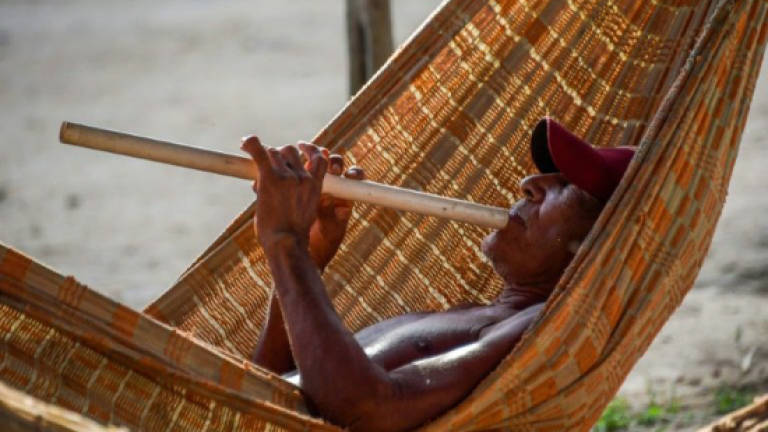A chance Amazon encounter, then a tribe's near extinction

TZAKO Waiapi remembers perfectly the day he first stumbled across white men while hunting in the Amazon rainforest: within months nearly everyone he knew had died of a mysterious sickness.
That meeting at the opening of the 1970s was a stunning encounter between two worlds – and also the start of a terrible tragedy.
On one side were members of the Waiapi tribe. On the other were the pioneers of Brazil's relentless push to mine, log and generally exploit the Amazon's natural resources.
Neither side even knew the other existed.
"The whites pulled out revolvers, we had arrows and also reacted, and everyone faced off," the elderly chief from the village of Manilha, deep in the Amazon, recalled.
The incident ended peacefully but the gold prospectors who penetrated the forests were unleashing a far more lethal weapon on the Waiapi tribe than any revolver.
Diseases like measles and influenza had long been under control in developed societies. However, on being spread to indigenous peoples with no natural immunity, the viruses went off like bombs.
"The Waiapi were not used to these diseases and they killed people quickly," said Tzako Waiapi, reclining in a hammock under a palm thatched roof, surrounded by chickens and family members, all of whom wore the tribe's traditional red loincloth.
"When we got flu, we got better," he said, "so when the measles started we thought we'd get better again. But measles is stronger and it took people just a day to die."
Tzako Waiapi could not give his exact age, estimating he is in his 80s, but his memory of the horror when he was a much younger man, is painfully fresh.
"There was no one left to bury the dead. Animals ate the bodies because no one had relatives left to bury them," he said.
Asked how many people close to him he had lost, he began by naming them one at a time: wife, father and mother in law, brother in law, children. Then he stopped counting and waved his hand to indicate the reality – too many to count.
"They robbed the Waiapi of their children," he said.
Never again
According to a census count, the Waiapi population numbered just 151 people in 1973, down from estimates of around 2,000.
Tribal members today say that there were other groups of Waiapi, traditionally living between Brazil and French Guiana, who escaped the plague thanks to their isolation.
Those survivors and a subsequent Brazilian government program of vaccinations helped the tribe recover to today's numbers of about 1,200. While there is an ominous absence of elderly people in Waiapi villages – those killed in the 1970s – children seem to be everywhere.
Now it's not disease that the Waiapi fear, but ever growing pressure from the center-right government and industrial lobbies to open their forests to mining and logging.
A failed attempt by President Michel Temer earlier this year to authorise foreign mining exploration in a Switzerland-sized conservation zone known as Renca sparked panic.
"We're fighting for this never to happen again. That's what I tell my children, my grandchildren, my people," chief Tzako Waiapi said.
"We're ready for war now. We'll never retreat." — AFP